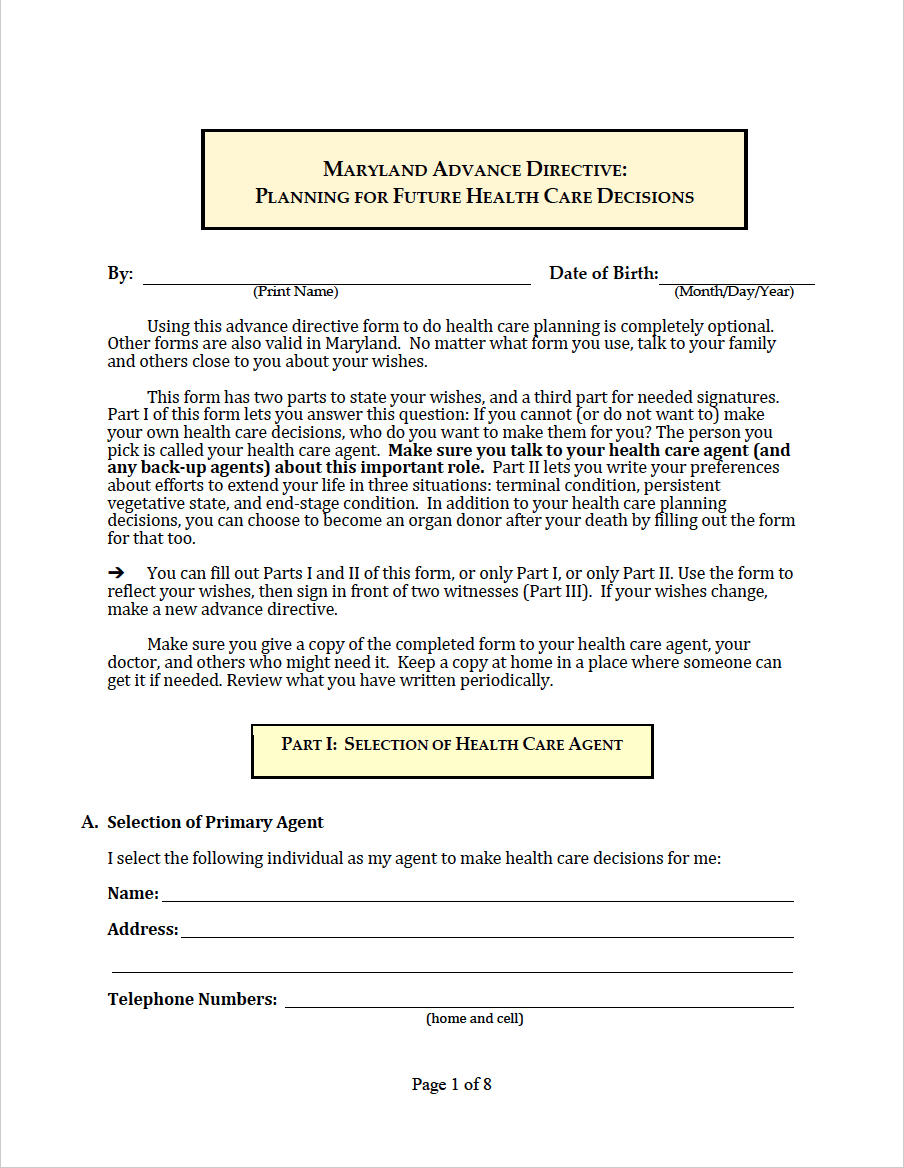Maryland Advance Directive Form
A Maryland advance directive is a form that allows an agent to make decisions for a principal if they experience a medical event that leaves them incapacitated. It is a two (2) part document that consists of a living will and medical power of attorney. A power of attorney permits the agent to act on the principal’s behalf. In comparison, the living will contains specifics on carrying out the principal’s wishes for life-sustaining treatment.
The agent, principal, and physician must sign the form. Any previous medical power of attorney forms become null once a new one is signed. It is durable, meaning it does not expire unless it has a termination date or the principal revokes it.
Part two (2) of the document, otherwise known as the living will, covers treatment preferences. This section covers preferences for life-sustaining treatment in the following situations: 1) terminal condition, 2) persistent vegetative state, or 3) end-stage condition. The principal can receive comfort care and/or tube or intravenous nutrition and fluids until natural death occurs. They can also choose to prevent or delay their death if they allow the agent to make decisions that will extend their life for as long as possible.
A do-not-resuscitate (DNR) or do-not-attempt-resuscitation (DNAR) form should accompany the living will. A licensed physician must complete this document as it states whether or not the principal will receive cardiopulmonary resuscitation (CPR) in a medical emergency.
The principal may or may not want the agent to make their medical decisions. Oftentimes, the principal will choose their preferred treatment plan and the agent will follow their instructions exactly as written in the document. If a medical emergency occurs that is not listed in the form, then it is the responsibility of the agent to make a decision that they feel the principal would want. Examples of medical choices include:
- Doctors & facilities;
- Tests to run;
- Surgery;
- Drug treatment;
- Comfort or quality of life;
- Treatment of brain (damage/disease);
- Coma (disconnect or connect life support); and/or
- Other medical choices (i.e., Huntington’s disease, general anesthesia, stroke, Alzheimer’s/dementia, Lou Gehrig’s disease).
State laws: § 5-601
Signing requirements (§ 5-602(c)(1)): Signed by the principal and observed by two (2) witnesses.
